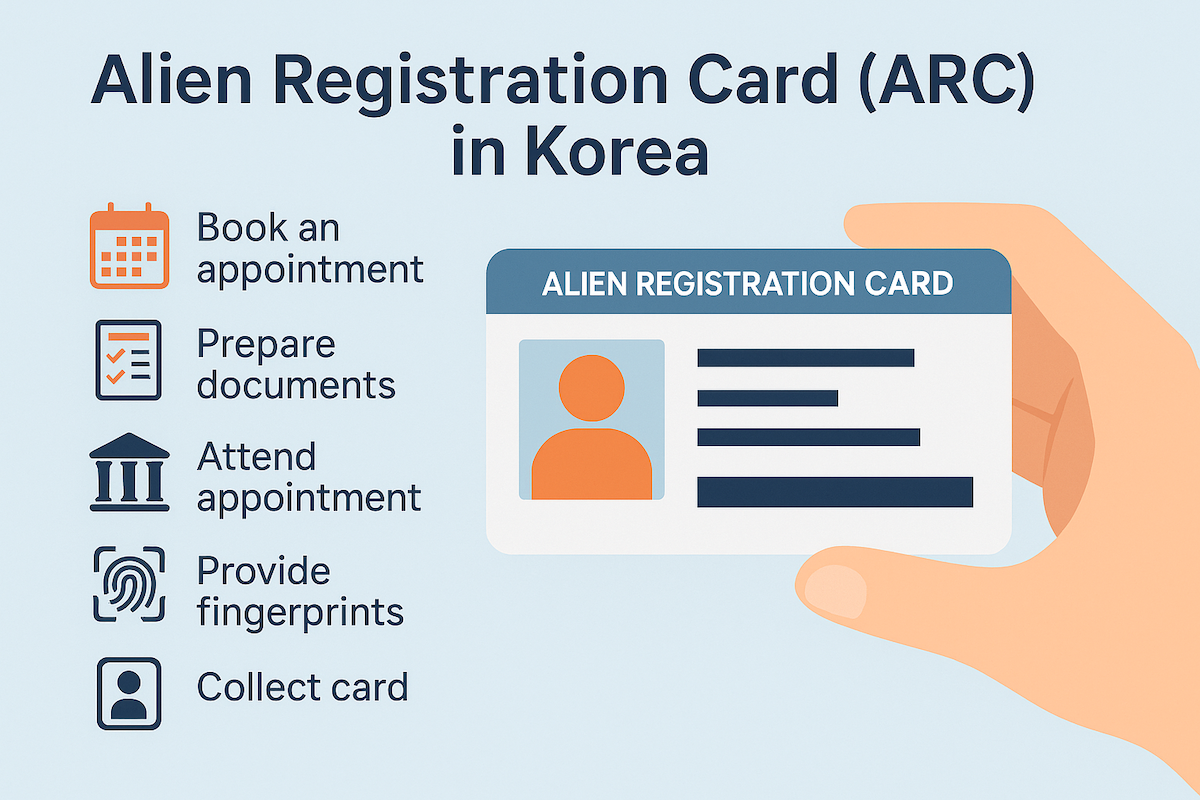✨ Introduction
For many foreigners living in South Korea—whether as international students, English teachers, or corporate expats—getting a credit card is not only about convenience but also about building financial trust in the country.
Unlike a check (debit) card, which directly withdraws from your bank account, a credit card allows you to pay first and settle later. With Korea’s strong point-reward ecosystem, transportation integration, and cashback benefits, credit cards can save you money and help you blend into local financial life.
But here’s the challenge: foreigners often face stricter requirements than locals when applying for a credit card. This guide will explain everything you need to know in 2025: from eligibility, documents, and application steps to the best card options and practical tips for approval.
🏦 1. Can Foreigners Get a Credit Card in Korea?
Yes, but with conditions.
Korean banks and card companies evaluate foreigners more carefully due to shorter stay durations and lack of Korean credit history. Approval depends on:
- Visa Type: Long-term visas (D-2 student, E-2 teacher, F-series residency visas) have a higher chance. Tourist visas (C-3) or short-term visas are almost always rejected.
- Residency Period: Most banks require at least 1 year of stay remaining on your visa.
- Income Proof: A stable job contract, monthly payslips, or business registration (for self-employed foreigners).
- Korean Guarantor: Some banks may ask for a Korean co-signer, though this requirement is less common now.
👉 Tip: F-2, F-5, and F-6 visa holders usually face the least difficulty, as they are considered semi-permanent residents.
📑 2. Documents Required for Application
When applying, prepare these documents:
- Alien Registration Card (ARC) – must be valid with at least 1 year remaining
- Passport – to confirm identity and nationality
- Proof of Employment – job contract, payslips, or employer certificate
- Residence Certificate (주민등록등본 equivalent for foreigners) – available at local district offices
- Bankbook (통장) – showing account details in a Korean bank
- Tax Certificate (소득금액증명원) – sometimes required for income verification
💡 Pro Tip: If you are a student, you may need proof of parental remittance or a scholarship certificate to show financial reliability.
💳 3. Credit Card vs. Check (Debit) Card in Korea
Foreigners often confuse these two:
- Check (Debit) Card: Instant deduction from your bank account. Easy approval, no credit check.
- Credit Card: Pay later (monthly billing). Requires evaluation of financial reliability.
| Feature | Debit (Check) Card | Credit Card |
|---|---|---|
| Approval | Very easy | Strict |
| Payment | Instant | Monthly bill |
| Benefits | Minimal | Cashback, points, discounts |
| Foreigners’ Access | 100% | Conditional |
👉 If you can’t get a credit card right away, start with a debit card. Many foreigners later upgrade after 6–12 months of financial activity in Korea.
⭐ 4. Best Credit Cards for Foreigners in Korea (2025)
4.1 Shinhan Card (신한카드)
- Why Popular: English support, wide acceptance, strong rewards system
- Benefits: Transportation discounts, shopping points, global usability with Visa/MasterCard
- Best For: Expats in Seoul who use subways, buses, and major supermarkets
4.2 KB Kookmin Card (국민카드)
- Why Popular: Trusted by many foreigners, strong cashback system
- Benefits: 5% cashback on restaurants and convenience stores, discounts on movie tickets
- Best For: Students and office workers
4.3 Hyundai Card (현대카드)
- Why Popular: Trendy design, lifestyle perks
- Benefits: Travel discounts, music streaming (Spotify, Melon), and lounge access
- Best For: Young professionals and digital nomads
4.4 Samsung Card (삼성카드)
- Why Popular: Strong online shopping perks
- Benefits: Coupang, Gmarket, and online platform discounts
- Best For: Heavy online shoppers
🛠 5. Common Reasons for Rejection
Even if you meet the basic requirements, applications can be denied.
- Visa duration under 12 months
- Unstable employment (freelance contracts without tax proof)
- Low or no Korean credit history
- Applying too soon after opening a bank account
- Lack of Korean language ability during application
👉 If rejected, don’t worry. Start with:
- Secured Credit Card (보증금 신용카드): Deposit a certain amount (₩500,000–₩1,000,000) and use the card against it.
- Prepaid Card: Works like a credit card but preloaded.
After 6 months of consistent usage, try reapplying.
📲 6. How to Apply for a Credit Card (Step-by-Step)
- Choose a Bank or Card Company: Shinhan, KB, Hyundai, Samsung are most foreigner-friendly.
- Visit the Branch in Person: Most applications must be made face-to-face with documents.
- Submit Application: Fill out forms (Korean language, but staff often help).
- Verification: Bank checks income, visa, and credit history.
- Approval: If successful, card issued within 7–14 days.
💡 Tip: If your Korean is limited, bring a Korean friend or co-worker to assist.
💡 7. Everyday Use & Benefits
- Transportation: All Korean credit cards double as T-money transit cards. Just tap at subway gates or buses.
- Online Shopping: Many Korean websites require credit card authentication (공인인증, now called 공동인증서).
- Mobile Payment: Link to KakaoPay, NaverPay, or Samsung Pay for easy mobile purchases.
- Bill Payments: Utility bills (gas, electricity, internet) can be auto-charged to your card.
🛡 8. Building Korean Credit History
Foreigners can build a Korean credit score (신용점수) just like locals.
- Use a secured card responsibly
- Pay bills on time
- Keep balances low
- Maintain steady income records
Over time, this increases your approval chances for better cards, loans, or even phone installment plans.
📌 9. What to Say If You Need Help (Practical Phrases)
- “외국인인데 신용카드 신청 가능합니까?”
(I’m a foreigner, can I apply for a credit card?) - “체류 기간이 1년 이상 남아 있습니다.”
(My visa has more than one year remaining.) - “보증금 카드라도 괜찮습니다.”
(I’m okay with a secured credit card.)
These simple phrases can make the process smoother.
✅ Conclusion
Getting a credit card in Korea as a foreigner is possible, but requires preparation and patience.
- Long-term visa holders with proof of income have the best chance.
- Start with debit or secured cards if rejected.
- Build Korean credit history for future financial flexibility.
With the right strategy, you’ll not only get approved but also unlock powerful benefits—cashback, discounts, and convenience—that make living in Korea smoother and more affordable.





